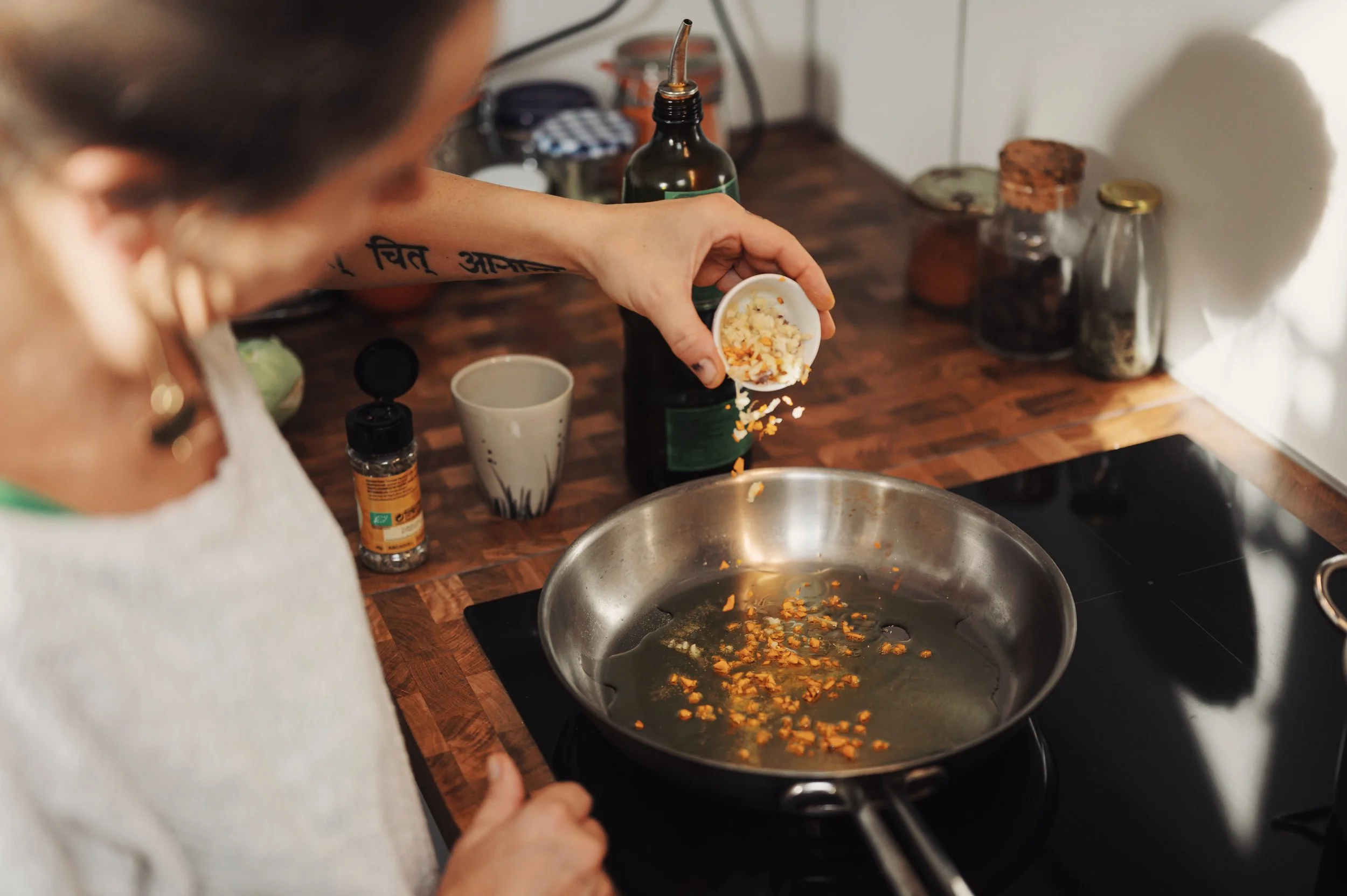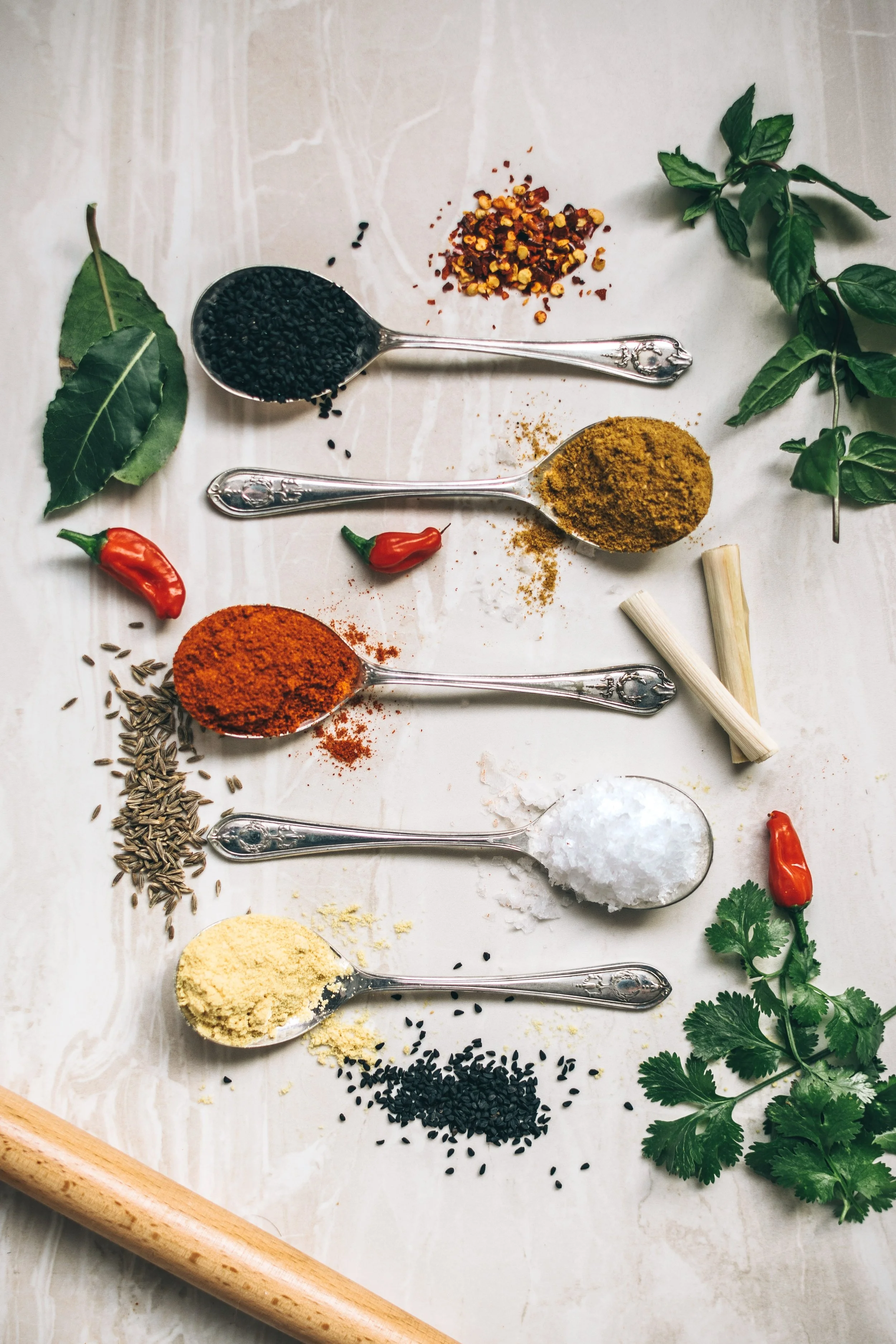Your Expat Kitchen
This post is part of our “Expat Life” Series.
One of the five senses through which we experience life is taste. Most of us eat three meals a day, and on average, we will spend four and a half years of our lives eating. Food is not an inconsequential part of our lives, and if we are also the main cook for our households, we spend even more time thinking about and preparing food. As I have gotten settled in Casablanca, I have realized that my other expat friends and I often discuss ingredients we find (or more often, cannot find) and people who have newly settled in country will ask people who have been around longer what they like to cook. Like it or not, food is a big part of our lives, especially because as expats, what is available, affordable, and easy to make has completely shifted compared to our passport country. Unfortunately, we may find that old favorite recipes may not be practical to make anymore. In this post, I will be sharing what I have learned as an expat, amateur cook and baker, as well as some of the no-fail recipes I have discovered over the years while living and cooking in five different countries outside my passport country.
Decide what matters to you in your expat kitchen.
First, I should let you know that I am a Midwestern American who developed a passion for cooking and baking when I was in high school, and I have kept cooking and baking all these years, even across continents, countries, altitudes, and climates. I learned how to successfully bake at high altitude in the Andes mountains, but had plenty of fails along the way, too. I have lived in countries with vastly different cuisines, and tried to learn a little about each of them and a few recipes from the various cultures. However, I also love foods from around the world, which has meant learning to make recipes that I could have easily just ordered from a restaurant in my life before moving overseas. I love variety and trying lots of new recipes, but sometimes I just want to taste the foods that feel like home to me. Thinking through all of these different aspects of my life helps me to recognize and name what matters to me about food, and that is where you need to start as well.
There are so many things that could matter to you in your expat kitchen. Variety? Consistency? Ease? Budget? What matters to you when you think about the meals you make and eat?* Do you only want to eat foods that are common in the culture where you live? Do you never want to cook foods from your host culture because you can get them anytime, and the foods you want to make at home are the ones you can’t get anywhere else? Do you have a busy life and just want to spend as little time in the kitchen as possible? Think about how you want to relate to your food, and what matters to you about cooking and eating in this season of your life. Then pursue the recipes, techniques, and methods that will meet that goal. What matters to you will help you answer a couple of important questions, too: what ingredients and kitchen tools do I need to bring with me from abroad?
Ingredients From Abroad
Every expat I know will have a different answer to this question, based on where they are from, where they live and what foods matter to them. It would probably help you to ask other expats before you move if specific ingredients are available.
Possibilities (based on ingredients I currently have in my kitchen and brought from abroad: Chili powder, French Maldon sea salt, sumac, Cajun seasoning, Costco/Kirkland Organic No Salt Seasoning, Johnny’s Garlic Spread, vanilla extract, and my favorite teas. During the previous Christmas season, I discovered that it would be helpful to have molasses and corn syrup for certain recipes, but I didn’t have either. If you can, think through some of your favorite things to make, especially around holidays if you will spend them abroad, and check with some other people who live in that country to see if the ingredients are available. Once you move, you can also keep a running list of the things you want to bring from abroad next time you have the opportunity.
Cooking Tools From Abroad
Again, this will depend on what you are used to having available, and what you can find in your host country. Additionally, you may be disappointed in the quality of the tools you can find in your host country compared to what you are used to. And what you do in your kitchen will impact what you need to bring with you. I use a lot of garlic, so I brought both a high-quality garlic press and a garlic peeler with me. I also brought my own Silicon baking mats, measuring cups and spoons, and also know that any specialty baking tools will be harder to find outside of the US. Two more tools I am thankful I brought from abroad are my Microplane and French Press.
Two Really Important Skills I Have Learned
Ingredient substitutions
In the United States, we are used to having any and all ingredients available in a convenient way. Many of the convenient shortcuts written for cooks in the US are not available to us, though, so figuring out what to substitute in recipes and how to make things the less convenient way has been a vital skill for me. It is also important to recognize that every recipe might not be the recipe for me. I was recently looking for a recipe for homemade granola, and with the endless number of options for recipes available to me on the internet, I don’t have to choose the one that has several ingredients that will be hard to come by or expensive; instead, I found a recipe that will be doable for me.
A recipe may call for a seasoning mix that I have to mix up from scratch, especially taco seasoning, Italian seasoning, and za’atar. Anytime you run into this problem, you can usually find a spice blend recipe on Pinterest or Google.
Other common ingredient substitutions that I use: plain yogurt for sour cream, cane sugar for brown sugar (though you can also make your own if you have access to molasses ), milk with vinegar for buttermilk, etc. See this list for more ideas.
Cooking seasonally
The other skill that is vital, arguably for every home cook, but perhaps especially for expats living abroad, is to cook seasonally. For me, it is less frustrating, and less expensive, when I choose to cook what is available in this present season. I live in a place with a truly rich agricultural industry, and so there are amazing fresh fruits and vegetables available all year long. Buying from my local produce stand or market whatever is fresh and readily available helps my budget, and helps the food I prepare to be the most delicious it can be. The foods I make will change throughout the year, but that helps me to live in the present and appreciate what is available in its time. And we also buy in the season (when the fresh produce is hopefully at its cheapest) and freeze what we can (especially strawberries, my husband’s favorite fruit).
Because I like to cook with fresh herbs all year long, I started an herb garden on my balcony to help my budget. This is another example of naming what matters to me in my expat kitchen, and pursuing that within my parameters of budget, time, etc.
No-Fail Recipes
As I mentioned before, I love to try new recipes and switch things up regularly, but these are recipes that I have come to rely on.
Chickpea Bowl and Butter Chicken from the Lazy Genius
Hummus, salsa, guacamole - These will be to your taste, but for me, it is really important to still be able to reach my favorite snacks. Check out my favorite hummus, salsa fresca, restaurant style tomato salsa, and corn salsa to get you started.
Pasta with Homemade Bolognese
I hope this helps and inspires you in your expat kitchen! Share in the comments what ingredients and recipes you can’t live without, and what you have learned about cooking and baking as an expat.
*Credit to Kendra Adachi (@thelazygenius) for this Lazy Genius principle to “name what matters.” You can find out more from her book, The Lazy Genius Way.
Moving to Morocco? Learn the local culture for a smoother adjustment and better understanding and appreciation of this beautiful country.











Humility and a learning spirit are two critical elements to operating a company as a foreigner in Morocco. The learning process for anything can be hard, and learning to operate a business is no exception. Operating a business will vary from city to city, with rules and regulations required in one city but not in another. Below are some ideas to make your business experience a little easier.